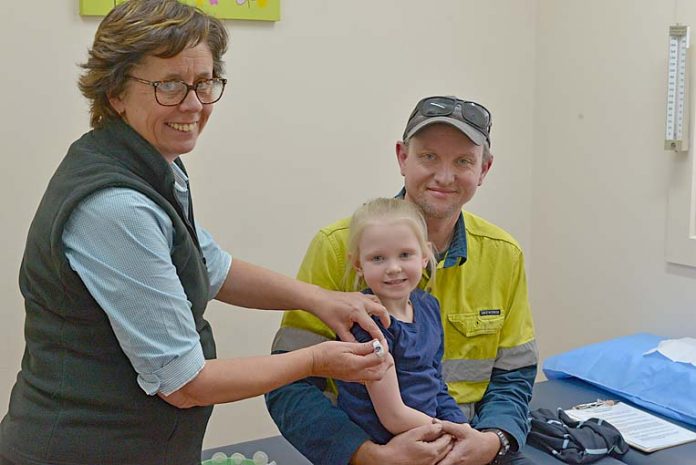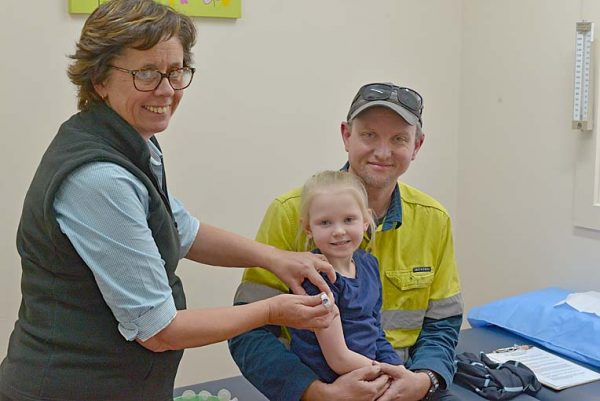

THE Limestone Coast continues to be a state leader in early childhood vaccination rates with over 95pc of children aged five or under meeting standard immunisation requirements.
An SA Health discussion paper released this week revealed most regional South Australian communities meet or exceed the government’s desired percentage of vaccinated children.
Hawkins Medical Clinic partner Dr Steve Dunn said the reported high percentage was consistent with the children treated at the clinic.
“I think our overall rate is quite good,” Dr Dunn said.
“Undoubtedly there is a small portion within the region that do not vaccinate their children, but we do not see them in our clinics very often.”
Dr Dunn said the region’s high percentage rate was a success when compared to other areas around the country.
“95pc would compare well to other known areas, especially on the east coast of New South Wales, where uptake rates for vaccines are around 60-70pc,” he said.
“The percentage here is almost as good as you could get.”
Dr Dunn said an increase in meningococcal B strain vaccinations could be linked to a number of reported South East cases, which sparked widespread community action.
“If a tragedy does happen locally we do see links between that and an increase in vaccinations,” he said.
“When these things do happen we have to brace ourselves for an influx of anxious parents the next day.”
He said people were more aware of vaccinations against meningococcal B and other diseases due to the “magic of social media”, adding it was helping to shrink the gap between vaccinated and unvaccinated.
“The main risks on a population basis is if the herd immunity drops, these diseases and especially those which are highly contagious, can have significant outbreaks,” he said.
“These outbreaks can happen because a number of small communities have decided against vaccinating their children, which then allows for the diseases to spread.”
South East Community Health nurse and immunisation coordinator Fiona Unger said although common disease symptoms can often start as a cough or cold, she encouraged parents to “stick with their gut” and see healthcare professional if temperatures spike or symptoms do not ease.
“Parents know when their child is not well,” Ms Unger said.
“High pitched screaming as well as unexplained rashes or any other symptoms that may cause alarm bells for the parents should be looked at.”
Ms Unger praised the community for its return rate for the meningococcal B strain.
“The return rate for the vaccinations was a good outcome and we are now covered very well,” she said.
“However, it is important parents of newborns and those in early childhood do keep up to date with vaccinations.”
With SA Health announcing Monday it now recommends pregnant women are vaccinated against whooping cough from 20 weeks as opposed to 28 weeks, Ms Unger urged women to heed the advice.
“Whooping cough is highly contagious and most people do not know they have the disease until later down the track,” she said.
“It starts as a cough and a cold, yet with adults it may not get diagnosed until later as they believe it may just be a cold.”
A spike in flu cases has also triggered an influx of people seeking flu vaccinations.
Ms Unger said the community clinic has had to extend its public consultation opening hours to keep up with the high demand.
“Whole families are coming in to get their vaccinations done because they think about the rest of the family too.”







